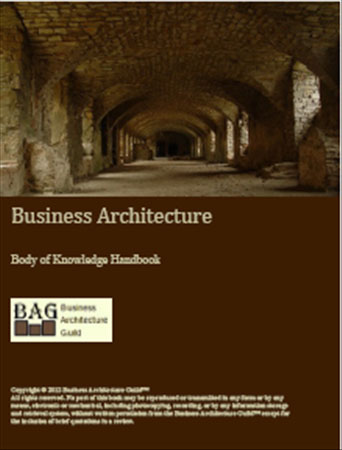For a number of years business architecture was considered an art form, the domain of a handful of practitioners and consultants. Debates raged across standards groups and discussion boards over the use of capabilities versus value streams, the role of processes, governance and ownership, and where business architecture ended and IT architecture began. Endless discussion threads pitted one individual’s view against another, often ending in stalemate. Discussions volleyed back and forth for years, but never produced substantive content that would allow business architecture to progress from art to science. While pockets of resistance remain, the industry is now rallying around a common set of highly aligned disciplines for deploying and using business architecture.
Business architecture alignment evolved organically. As demand for business architecture grew in recent years, practitioners began to rally around a common set of approaches, including capability mapping and value mapping. While these disciplines are basic aspects of business architecture, capabilities maps and value maps do not tell the entire story. Organization and information mapping round out the picture to form a core set business architecture of blueprints. These disciplines are further augmented by strategy, initiative, product and service, customer, partner and related mappings that collectively form a complete view of the given business. While these different views of a business made sense to many people, the industry lacked a shared body of knowledge that could serve as the foundation for understanding and applying these disciplines in practice.
As the practice of business architecture, including alignment of capability and value mapping coalesced, a natural progression saw individuals rally around a common framework and body of knowledge. The Business Architecture Body of Knowledge Handbook 2.0 or “Handbook” resulted from these efforts. The Handbook emerged from a member-based, not-for-profit organization called the Business Architecture Guild. The Guild does not deliver consulting, training or harbor other profit-oriented motives. To the contrary, the Guild’s purpose is “to promote best practices and expand the knowledgebase of the Business Architecture discipline.” The Handbook is the common rallying point for this discussion.
Handbook 2.0 incorporates a common framework for business architecture, blueprint creation and usage guidelines, scenario templates, a section on knowledge mapping and an industry glossary. Blueprint sections provide guidance on strategy, capability, organization, value and information mapping. Practice guidelines address getting started, governance and team building, business process, case management and business model alignment, and business architecture / IT architecture alignment. The Handbook also contains guidelines for business architecture tooling options and business architecture scenario deployment.
The Handbook has been aligned with knowledge management efforts at the Object Management Group (OMG), the industry standards body. The Guild is also a member of the Federated Enterprise Architecture Professional Organization (FEAPO), where it collaborates with other industry associations and is raising the visibility of business architecture to a new level.
Of course, the test of any body of knowledge is adoption. With members on six continents and practitioners across many industries, the Guild membership is poised to collectively drive the body of knowledge in new and unique directions. With this baseline in place, business architecture can now move to the next level. This would not be possible if the body of knowledge emerged from a single vendor or a single individual driven by profit motivation.
Another test of adoption is automation. The Handbook is inspiring tool vendors to deliver new lightweight business architecture tooling that can be used to rapidly build and share business architecture results while integrating those results with other disciplines. With the Handbook as a guide, tool vendors have a ready-made market for practitioners eager to see their work expedited.
Finally, the Handbook provides a baseline for solidifying training courses, such as those offered by the Business Architecture Institute. Learn more about the Business Architecture Certificate of Training program.
Business architecture has moved well beyond the early days of experimentation and is being leveraged by business executives for a variety of planning and transformation efforts. The time is right to end academic debates and capitalize on this important and growing discipline. The Handbook even has a placeholder for real life case studies – this will be one of the most interesting aspects of the body of knowledge as time progresses.
BAInstitute.org is featuring the overview and table of contents to it’s members as part of their partnership with Business Architecture Guild. Please note that this a table of contents only, to obtain a full copy of the Handbook, please visit the Guild website.

















